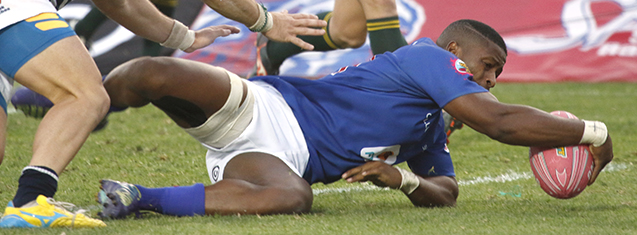
Not only will UFS Shimlas rugby team host their first-ever Varsity Cup final in Bloemfontein, but they still remain the only unbeaten side in this year’s tournament.
Shimlas knocked the defending champions, the University of Cape Town Ikeys team, out of the tournament during the semifinal in Bloemfontein on Monday 30 March 2015, beating the visitors 21-10. In Pretoria, North-West University’s Pukke crushed top-of-the-log University of Pretoria Tukkies with a close-edged 29-28 win in the other semifinal.
It was the first-ever home semifinal for Shimlas. The home side showed determination from the start of the match when No.8 Niell Jordaan crossed the line early on for the first try of the clash. Shimlas’ Niel Marais was successful with the kick at goal, giving the home side an 8-0 lead..
Shortly afterwards, the Ikeys scored their first try of the match, but were unsuccessful with the conversion kick. Shimlas struck back with a driving maul where flank Daniel Maartens scored the second Shimlas’ try of the night, taking the scoreboard to 16-5 after yet another conversion by Marais.
Ikeys managed to get another unconverted try shortly before the halftime break, leaving the score at 16-10 after the first 40 minutes, with just two conversions separating the teams.
The second half saw less action, but Shimlas’ left wing Maphutha Dolo scored his team’s third and final try of the match, putting them in a 21-10 lead minutes before full time.
Shimlas will host Pukke for this year’s Varsity Cup final on Monday 13 April at 19:00 at Shimla Park, UFS Bloemfontein Campus.
Player that Rocks: Daniel Maartens
UFS Shimlas point scorers:
Tries: Niell Jordaan, Daniel Maartens, Maphutha Dolo
Cons: Niel Marais (2)